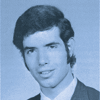Barney J. Brawer – 50th Reunion Essay
Barney J. Brawer
 16 Beals Street
16 Beals Street
Brookline, MA 2446
barney.brawer@thenationalclassroom.com
617-905-3156
Spouse(s): Kitty Boles (1979)
Child(ren): Molly (1982), Henry (1994)
Grandchild(ren): Skyy (2013)
Education: Ed.M 1977, CAGS 1995 – Harvard Graduate School of Education
Career: Urban elementary and high school teacher, public school principal in suburban, rural and urban schools, grades K-8, faculty member, Tufts University
Avocations: Folk/rock group with Yale classmate John O’Leary
College: Silliman
Privilege and Poverty: Our Generation and the Future
I have lived my life combining (a) material comfort, a terrific long-term marriage and wonderful kids with (b) ongoing initiatives to improve the education of poor children and the communities in which they live.
As we age, my body (like yours, probably) has had defects and problems, some serious—but I don’t think my work is completed yet. I will try to have another 10 to 15 years, God willing, of seeking to make a difference in the education of poor children.
My relationship with Yale, “back in the day” and 50 years later, has been complex. I have valued the friends and mentors from my years at Yale who helped me create my adult identity which, I believe, hasn’t changed much over the decades. My wife, Kitty Boles, just retired after 20 years as a classroom teacher followed by 25 years on the faculty of the Harvard Graduate School of Education. I have been a third and fourth grade teacher at the Martin Luther King School in New Haven (recently closed and demolished), a high school teacher in an urban alternative school, a public school principal in Franklin, Massachusetts, Putney, Vermont, and most recently the “turnaround” principal of a failing elementary school inside a public housing project in South Boston. I now have a small organization called The National Classroom, Inc. (www.thenationalclassroom.com) which serves as a coordinating structure for new initiatives.
In 1965, few of our parents sent us to Yale with the dream that we would become public school teachers, except briefly to avoid the draft. (I already had a 4-F deferment and an elevator key for Bingham Hall when I arrived at Yale.) As I became increasingly interested in the education of poor children and involved at Dwight Hall, many of my mentors and professors at Yale were fired by the university, denied tenure, or marginalized by their departments.
At our class’s 45th reunion, I took a walk up Dixwell Avenue. It was a sobering experience, just as it was when we were Yalies. The privileged world of Yale and the poverty of Newhallville live side by side. Beyond the university’s walls and green spaces, not much has changed.
Before he died 50 years ago, Martin Luther King, Jr., proclaimed, “I have been to the mountaintop. I have seen the Promised Land.” But today in Memphis or New Haven, Bridgeport or Chicago, Miami, Puerto Rico, or the streets of San Francisco, the gap between privilege and poverty is stark. In Vermont, the wealth gap is huge, but less entangled with race. In America’s heartland, rural communities struggle to pay their town’s schoolteachers and keep their kids from moving away.
I believe that our “legacy” as a generation must extend beyond preferential admissions for our own sons, daughters, and grandchildren. Yale with undergraduate women is a noticeably happier place than it was for many of us: the class of 1969 did help Yale’s leaders see that the admission of women would improve Yale.
But before our generation’s work is done, how can we help to heal the continuing divisions across race and gender, rich and poor, Trump supporters, Hillary voters, Bernie-istas, and the politically disengaged? What will be our “legacy” beyond ever fancier buildings, privileged admissions for our own families, and a divided nation with levels of turmoil that rival the ’60s? Is that really the best our generation can do?
If the above is blank, no 50th reunion essay was submitted.
